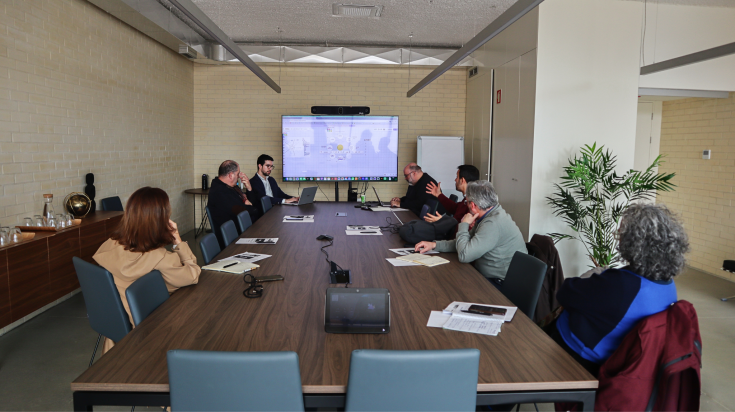PACT involves stakeholders into lively discussion
Évora, Portugal – on the regional stakeholder meeting on the 7th January 2025 organized by PACT, the participants had a fruitful discussion about a range of good practices and policy tools provided by the UnicornQuest consortium with the focus of supporting innovation and entrepreneurship across Europe:
- Vojvodina Development Agency, a Discovery Partner from Serbia, has the IP Box fiscal benefit, which benefits R&D-focused companies with reduction in company tax for those who register intellectual property.
- The North-West Regional Development Agency shared the LevelUP Health Acceleration Programme, which supports health sector companies with sector-specific assistance from industry professionals and mentors.
- Pannon Business Network Association cooperates with Start-It-Up Local start-up supporting association who is developing several services for local start-ups like a bootcamp focused on fostering entrepreneurship and business ideas in young students.
Mr. Ricardo Sobral (PACT) shared the a proposal about regional good practices that are intended to be submitted to Interreg Europe’s Learning Platform:
- Startup PhD, a doctorate level class by the University of Évora designed to assist PhD students in turning their work into a viable business idea.
- PAECPE, a policy from IEFP focused on advancing unemployment subsidies to unemployed entrepreneurs who want to create a business and providing them with support through an incubator network.
- TechVisa, an initiative from IAPMEI which accelerates the hiring process of highly qualified immigrants by approved companies.
Professor Rui Fragoso (CEFAGE, University of Évora) highlighted Startup PhD’s core goal: especially concerned with those working in technological areas, the class wants to help students turn the work being developed for their theses into viable business ideas. While hard to put into practice, the few times the class achieves its goal are worth the investment.
Tiago Teotónio Pereira (CCDR-A) queried whether Startup PhD teaches about financing sources, since CCDR-A currently has the “Qualified Entrepreneurship” call for proposals specifically targeting spin-offs and start-ups; it would be interesting to integrate financing, alongside inputs from other entities and partners, to bring practical aspects to the class. To this, Artur Romão (DECSIS) added that once, a master’s degree programme in the Economy department had a practical tool where students could learn more and trial financing sources.
Professor Rui Fragoso (CEFAGE, University of Évora) highlighted Startup PhD’s core goal: especially concerned with those working in technological areas, the class wants to help students turn the work being developed for their theses into viable business ideas.
Tiago Teotónio Pereira (CCDR-A) queried whether Startup PhD teaches about financing sources, since CCDR-A currently has the “Qualified Entrepreneurship” call for proposals specifically targeting spin-offs and start-ups; it would be interesting to integrate financing, alongside inputs from other entities and partners, to bring practical aspects to the class. To this, Artur Romão (DECSIS) added that once, a master’s degree programme in the Economy department had a practical tool where students could learn more and trial financing sources.
Following Mr. Américo Mateus’s presentation on knokcare—a Portuguese digital health startup close to “unicorn” status—participants discussed the company’s success factors, including adherence to European protocols, a tech-savvy physician in leadership, global inspirations (from China’s rapid growth to America’s robust culture), rapid scalability through Portuguese “test-beds,” and a people-centric approach. They also examined knokcare’s clientele, which includes businesses and insurers domestically, and government partners abroad (e.g., Italy’s national health service). While Europe’s regulatory landscape eases market entry, launching new features is legally complex. Beyond lacking sector-specific programs, knokcare noted Sweden’s direct support for digital health, contrasting with Portugal’s test beds (like TB4Health) that require a critical mass of knowledge centers. Attendees then explored digital literacy needs, regional attractiveness for tech companies, and potential partnerships such as CoLAB TRIALS in Évora.
Mrs. Paula Caeiro (IEFP) explored that one of the leading attractiveness factors for companies is the ecosystem in which they’ll work. This led Tiago Pereira to explain that a Free Technological Zone focused on aeronautics would be the most fitting, namely to explore drones and aviation prototypes. At the same time, prototyping concerns are later in a company’s priority list. More important at an earlier stage are the available platforms, the present partnerships, the availability of funding — where Horizon project partners are important given its attractiveness.

